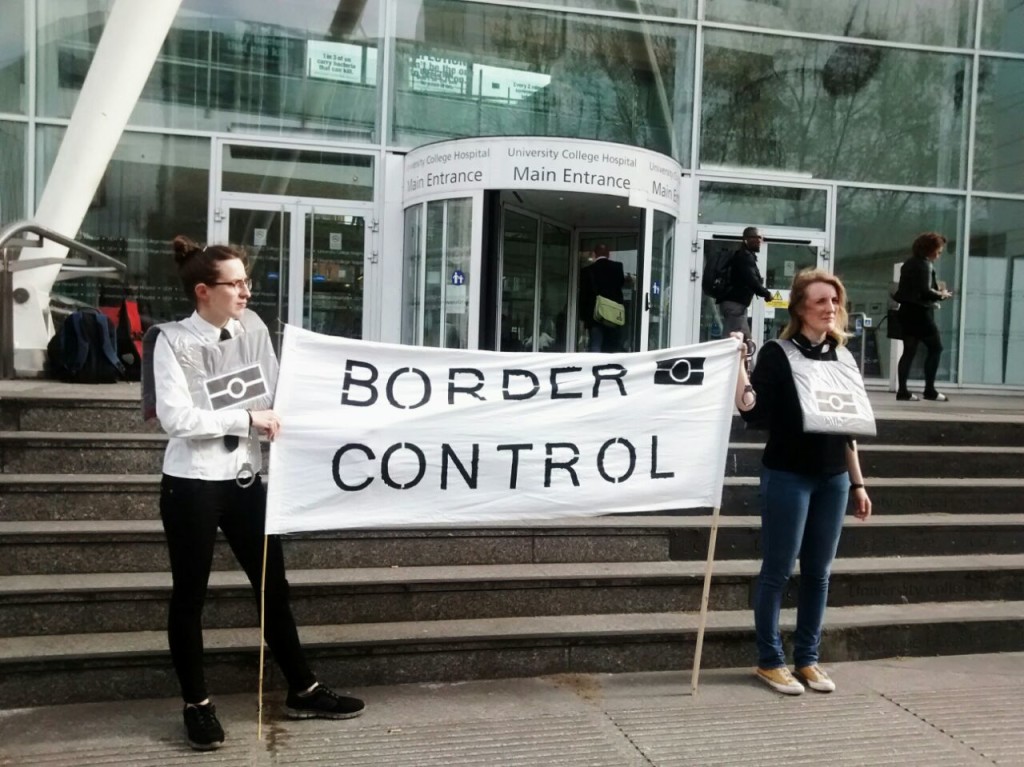While the government increasingly treats human rights as optional and legal accountability for its actions as undesirable, it demands more and more accountability from citizens in the policing of migrants and ‘extremists’.
What does democratic accountability entail? At a minimum, we expect our government to comply with fundamental human rights norms and with the rule of law, to take responsibility for its actions and offer redress to those adversely affected, through the courts. But this government is changing the meaning of accountability. It is increasingly treating compliance with international legal norms and human rights as optional. It is systematically attacking the mechanisms of legal accountability, through legal aid cuts, removal of appeals, hiking court fees and even by vilifying human rights lawyers. While seeking to loosen, dilute or remove mechanisms of redress for violations, it is demanding more and more accountability from citizens – not just in terms of our own actions being policed more intensively, but also forcing us to become involved in the policing and monitoring of others.
Human rights norms optional
In October 2015, the ministerial code was amended to remove references to ministers’ obligations to comply with international law when carrying out their duties. This quiet change, which the government insists will make no difference in practice, seems to come from the same approach to government which underlay the justice ministry’s 2014 proposal to make the European Convention on Human Rights ‘advisory only’: the idea that government compliance with international human rights norms it has signed up to is optional.
So we should not be surprised at the announcement on 7 March that UK troops are to help intercept and return refugees trying to reach Europe from Turkey – actions denounced a few years ago by the EU Commission and by the European Court of Human Rights as ‘collective expulsions’ violating EU and international human rights law. The week before, home secretary Theresa May announced a ‘compassion quota’ which would limit numbers of refugees accepted outside official resettlement programmes and possibly deny access to refugee determination procedures to overstaying students and foreign national offenders – measures which would breach the Refugee Convention. It appears that the government, having realised that repealing human rights laws would be too fraught with political and legal difficulties, has decided simply to ignore them when they interfere with policy objectives. Whether in the field of foreign policy, arms sales, business operations abroad or refugee reception, the government has sought to avoid international legal obligations, or dilute them by re-interpretation.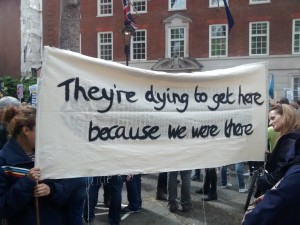
The UK is of course not the only European state seeking to evade international obligations towards refugees, nor the only EU state to treat rescue, decent reception and treatment of refugees as a ‘pull factor’. But the UK’s island status has left it largely unaffected by the surge in refugee numbers across Europe over the past year. This renders more shameful the Home Office’s refusal to participate in the EU’s inadequate reallocation scheme, or to contemplate a change in the Dublin regulation which would require the UK to take a fairer share of asylum seekers, or even to take responsibility for the hundreds of children stuck in the Calais camps or risking their lives to join family members in the UK. Since being ordered to by a court in a test case, the Home Office has brought just a dozen or so children and one vulnerable adult from northern France to the UK.
British foreign policies have, according to many commentators, helped to create the refugee crisis. But far from taking responsibility, the Foreign Office is actively downgrading the role of human rights in foreign policy, systematically subordinating them to trade and security concerns according to the UK director of Human Rights Watch, David Mepham in evidence to the Foreign Affairs Committee. 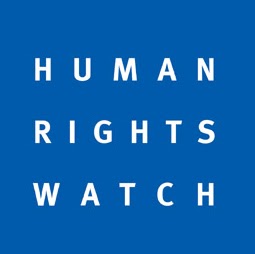 And while the European Parliament voted for an EU-wide arms embargo on Saudi Arabia because of its bombing of Yemen, the prime minister was celebrating Britain’s ‘brilliant’ arms sales to Saudi Arabia – a breach of the Arms Trade Treaty signed by the UK in 2014, according to Amnesty International’s Kate Allen. Some of the world’s most authoritarian regimes are welcomed to the Security and Policing arms fair, organised by the Home Office together with the arms industry’s trade body ADS. Meanwhile, Amnesty International reports that the Department of Business, Innovation and Skills’ National Contact Point, which monitors compliance with OECD guidelines on (inter alia) human rights by multinational corporations operating abroad, is systematically letting multinationals including G4S and mining corporations off the hook.
And while the European Parliament voted for an EU-wide arms embargo on Saudi Arabia because of its bombing of Yemen, the prime minister was celebrating Britain’s ‘brilliant’ arms sales to Saudi Arabia – a breach of the Arms Trade Treaty signed by the UK in 2014, according to Amnesty International’s Kate Allen. Some of the world’s most authoritarian regimes are welcomed to the Security and Policing arms fair, organised by the Home Office together with the arms industry’s trade body ADS. Meanwhile, Amnesty International reports that the Department of Business, Innovation and Skills’ National Contact Point, which monitors compliance with OECD guidelines on (inter alia) human rights by multinational corporations operating abroad, is systematically letting multinationals including G4S and mining corporations off the hook.
Legal redress curtailed
Amnesty’s annual report on the UK for 2015-16 documents concerns raised by the UN Human Rights Committee on the independence and impartiality of the Intelligence and Security Committee, which was tasked with investigating UK complicity in torture, after its failure to pursue the hobbled Gibson inquiry’s interim conclusions on British involvement in rendition and support for torture. 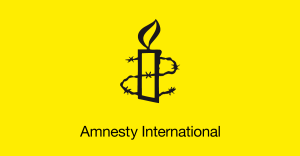 Meanwhile, the government continues its fight to prevent claims about British complicity in unlawful rendition from being heard in court at all. In November the Supreme Court heard the government’s appeal against a ruling that Libyan dissidents kidnapped and returned to Gaddafi’s dungeons had a right to a hearing in a UK court. But even if the case does get heard, the plaintiffs are likely to be shut out from much of the evidence, under the secret evidence provisions of the 2013 Justice and Security Act, condemned in a report for the European Parliament’s Civil Liberties, Justice and Home Affairs Committee as a threat to the rule of law.
Meanwhile, the government continues its fight to prevent claims about British complicity in unlawful rendition from being heard in court at all. In November the Supreme Court heard the government’s appeal against a ruling that Libyan dissidents kidnapped and returned to Gaddafi’s dungeons had a right to a hearing in a UK court. But even if the case does get heard, the plaintiffs are likely to be shut out from much of the evidence, under the secret evidence provisions of the 2013 Justice and Security Act, condemned in a report for the European Parliament’s Civil Liberties, Justice and Home Affairs Committee as a threat to the rule of law.
The government’s attempts to curtail legal redress for victims of human rights abuses by British soldiers in Iraq have taken a different form. 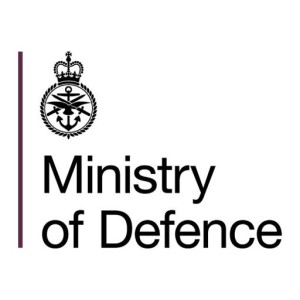 Although the Ministry of Defence has so far paid out around £20 million in compensation to Iraqi civilians in settlement of 323 claims of torture, inhuman or degrading treatment and unlawful detention (leaving over 600 civil claims and 1,400 related cases of judicial review pending), the MoD and the prime minister have publicly vilified the lawyers involved in the cases. Another tactic to stop the cases reaching court has been to cut off payment for them, through curtailing ‘No win no fee’ agreements and imposing a residence test for legal aid, which denies legal aid to anyone without one year’s lawful residence in the UK. The High Court ruled that, since access to justice is a fundamental right, and ‘he who is subject to English law is entitled to its protection’, the residence test unlawfully discriminated against foreigners. The Court of Appeal reversed the ruling, and the issue is currently before the Supreme Court.
Although the Ministry of Defence has so far paid out around £20 million in compensation to Iraqi civilians in settlement of 323 claims of torture, inhuman or degrading treatment and unlawful detention (leaving over 600 civil claims and 1,400 related cases of judicial review pending), the MoD and the prime minister have publicly vilified the lawyers involved in the cases. Another tactic to stop the cases reaching court has been to cut off payment for them, through curtailing ‘No win no fee’ agreements and imposing a residence test for legal aid, which denies legal aid to anyone without one year’s lawful residence in the UK. The High Court ruled that, since access to justice is a fundamental right, and ‘he who is subject to English law is entitled to its protection’, the residence test unlawfully discriminated against foreigners. The Court of Appeal reversed the ruling, and the issue is currently before the Supreme Court.
Apart from cutting legal aid, other ways in which the government has sought to restrict access to the courts for those without ample means include pushing up court fees, in some cases up to £10,000, tightening rules for judicial review and abolishing immigration appeals except those raising asylum or human rights claims.
In the fields of asylum support and immigration detention, the lack of accountability is particularly striking, as even successful legal challenges result in no change to policy. A successful judicial review in 2014 of the home secretary’s freezing of asylum support for three years at an unliveable amount resulted in a new decision, but no increase – and since then, the rate for children has been slashed, and the Immigration Bill proposes to remove support from most refused asylum seeking families, and to abolish the right of appeal against refusal or withdrawal of support (which had a success rate of over 60 percent). Similarly, despite six judicial rulings since 2011 that detention has amounted to inhuman treatment for particularly vulnerable immigration detainees, millions of pounds paid out to hundreds of detainees for unlawful detention, a strongly worded all-party parliamentary group report, a Westminster Hall vote by MPs and a House of Lords vote, the government sets its face against curtailing the use of immigration detention or imposing a statutory time limit. 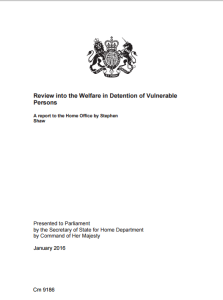 And despite the suspension of the ‘detained fast track’ for asylum seekers following court rulings that the speed of decisions and appeals made it so unfair as to be unlawful, and the Shaw review which called for a complete ban on the detention of pregnant asylum seekers and a much-reduced use of detention for others, survivors of torture, trafficking and other ill-treatment continue to be detained.
And despite the suspension of the ‘detained fast track’ for asylum seekers following court rulings that the speed of decisions and appeals made it so unfair as to be unlawful, and the Shaw review which called for a complete ban on the detention of pregnant asylum seekers and a much-reduced use of detention for others, survivors of torture, trafficking and other ill-treatment continue to be detained.
Dissent stifled
Political accountability too has been attacked, as charities and voluntary sector organisations have seen their freedom to criticise government policy limited by restrictions brought in through the 2014 Lobbying Act. This was followed up in February 2016 by a Cabinet Office fiat that all organisations receiving government funding are to be forbidden from criticising the government. The critical voice of the Third Sector, vital for revealing and correcting abuses and excesses, is being muffled, if not silenced.
More and more policing
At the same time as the government seeks to reduce its own accountability, it makes more and more demands on its citizens, in a trend that has been growing for decades but is now accelerating to an extraordinary extent. Citizens must submit passively to more and more policing: of their bodies, through scans and searches, biometric controls and CCTV; their vehicles, through automated number-plate recognition (ANPR); their communications, through ‘bulk interception’, data retention and mining; their opinions and associations, to ensure they are not ‘extremist’. Proof of identity and of lawful status is required to receive hospital treatment; to get a job or enrol in higher education; to get married; to claim any welfare benefit, or social or emergency housing; to rent a room or a flat from a private landlord; and under the Immigration Bill going through parliament, to get a driving licence or to open and retain a bank account. Under the Bill, designed to embed a ‘hostile environment’ for the undocumented, drivers must submit to being stopped not for alcohol consumption but to prove lawful status in the UK, to avoid arrest, and confiscation of their vehicle.
And it is not just police and immigration officers who police migrants. Staff in hospitals, in local authorities, universities and colleges, prospective employers in the private, voluntary and public sectors, bank staff and landlords, as well as road haulage contractors, train, airline and shipping operators have all been conscripted into immigration control, with varying degrees of coercion, in a process which is now more or less taken for granted.
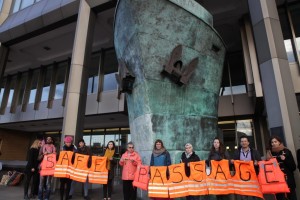
The penalisation of carriers who unwittingly bring ‘inadequately documented’ migrants into the UK is decades old. Now, the government seeks to increase penalties from £2,000 to £7,000 per passenger. But why should truck drivers, train operators, shipping companies and airlines be regulated and penalised for something which, unlike say passenger safety, is extraneous to their business? Not to mention that the treatment of people as contraband offers disturbing echoes of the treatment of slaves as cargo in earlier centuries.
Employer sanctions have been used for twenty years to enforce policies restricting rights to work for asylum seekers and migrants. Now, fines are set to double and prison sentences to increase from two to five years for employers hiring undocumented workers. The Immigration Bill contains powers to revoke licenses, to close temporarily businesses employing unauthorised workers, or put them under ‘special measures’ with periodic Home Office inspections. But why should employers be responsible for the immigration status of their employees? And why should this be a higher priority than paying the minimum wage or providing decent and safe conditions? Enforcement of minimum wage and health and safety protections is inadequate and underfunded, and the power of unions to protect workers’ rights is undermined by legislation to restrict trades union activity and rights to take industrial action which violates ILO Conventions as well as human rights law.
These penalties for carriers and employers of undocumented people are enshrined in EU law. But the UK has gone further down the road of co-opting its citizens into immigration policing than most European countries. 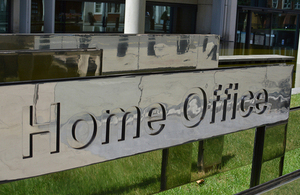 Universities and colleges have for several years been required to police their international students’ enrolment, attendance and performance for the Home Office, on pain of losing the right to enrol them. Marriage registrars have since 2002 been under a duty to notify the Home Office of any suspicious proposed marriages (where one party is a non-EU national who may be entering the marriage for immigration purposes). Now, private landlords, who are free to charge what they like and whose freedom to evict tenants is only lightly regulated, can be fined up to £3,000 per occupant for renting property to those without a right to stay in the country. The Immigration Bill proposes even harsher penalties, including sentences of up to five years’ imprisonment for knowingly renting to undocumented migrants.
Universities and colleges have for several years been required to police their international students’ enrolment, attendance and performance for the Home Office, on pain of losing the right to enrol them. Marriage registrars have since 2002 been under a duty to notify the Home Office of any suspicious proposed marriages (where one party is a non-EU national who may be entering the marriage for immigration purposes). Now, private landlords, who are free to charge what they like and whose freedom to evict tenants is only lightly regulated, can be fined up to £3,000 per occupant for renting property to those without a right to stay in the country. The Immigration Bill proposes even harsher penalties, including sentences of up to five years’ imprisonment for knowingly renting to undocumented migrants.
Hospitals, local authority housing and social service departments, banks – all must check immigration status before providing their services. In all these ways, citizens, in their capacity as employers, higher education providers, landlords, health professionals, bank or financial service workers, marriage registrars, transport workers, are expected to be accountable to the state for policing migrants, and are required to be so on pain of penalty. Since rights to work, to housing and health care are all enshrined in international human rights law, these provisions in fact coerce citizens’ compliance with violations of human rights, sometimes (in the case of employers and landlords) on pain of criminal penalties.
 The duties of health professionals, employers and landlords, unlike marriage registrars and colleges, are to deny jobs and services to the undocumented, and do not extend to denunciation. But many workers in these fields may not appreciate the distinction, and it may be that they account for the bulk of the 75,000 allegations added to the Home Office’s online Intelligence Management System in 2013. If not, the volume of denunciations suggests that the poisonous climate engendered by the unremitting scapegoating of migrants, and undocumented migrants in particular, has fed a public appetite. An official government website encourages citizens to inform on undocumented migrants, and supplies various ways of doing so anonymously, by phone or online. It advises ‘in an emergency, dial 999 and ask for the police’ – suggesting that being undocumented may be as inherently threatening as waving a gun.
The duties of health professionals, employers and landlords, unlike marriage registrars and colleges, are to deny jobs and services to the undocumented, and do not extend to denunciation. But many workers in these fields may not appreciate the distinction, and it may be that they account for the bulk of the 75,000 allegations added to the Home Office’s online Intelligence Management System in 2013. If not, the volume of denunciations suggests that the poisonous climate engendered by the unremitting scapegoating of migrants, and undocumented migrants in particular, has fed a public appetite. An official government website encourages citizens to inform on undocumented migrants, and supplies various ways of doing so anonymously, by phone or online. It advises ‘in an emergency, dial 999 and ask for the police’ – suggesting that being undocumented may be as inherently threatening as waving a gun.
Migration is not the only field where citizens are encouraged to inform on each other. In the field of welfare benefits, similar vilification of claimants has led to an even greater volume of benefit fraud allegations, with more than 1.6 million denunciations by members of the public between 2010 and 2015, of which, according to the Observer, 85 percent were unfounded. (The proportion of unfounded ‘illegal immigrant’ allegations is unknown.)
Policing ‘pre-crime’
That statistic of 85 percent is fairly close to the 80 percent of referrals to the counter-terrorism programme, Channel, rejected as unfounded between 2006 and 2013. But since July 2015, such referrals form part of a new policing duty to which citizens are subject. Teachers and university lecturers, health and social workers, local authority workers, even early years and childcare providers, must under the Counter-Terrorism and Security Act 2015 ‘have due regard to the need to prevent people from being drawn in to terrorism’. Statutory guidance makes it clear that this means (amongst other things) spotting those who might be potential terrorists (according to extremely broad criteria) and reporting them to a police-dominated panel, Channel, which is entitled to demand information on them from partner agencies in order to decide on ‘pre-crime interventions’. Those professionals who fail to comply with the Prevent duty can be made subject to mandatory orders compelling compliance, and in the final analysis could be sent to prison for contempt. But the government is unlikely to want or need to resort to such draconian enforcement, given that for most of those under the new duty will comply – in fact over-comply – for fear of losing their job. Since most professionals have no idea what they’re looking for, and the guidance is so vague as to be almost totally subjective and indicates that if in doubt, refer on a ‘precautionary basis’, it is no surprise that those referred to the Channel panel are disproportionately Muslim, or that such a high proportion of referrals are unfounded.
Now that monitoring obligations have been imposed on education, welfare and health professionals among others, extreme concern has been voiced by teachers, university and college heads, child care and social workers, health professionals – in fact representatives of all those tasked with the new duty, as well as by lawyers concerned with counter-terrorism including the UK’s own ‘counter-terrorism watchdog’ David Anderson QC. The scope of the duty, how it is being interpreted, its impact on the way professionals comply with their own codes of conduct, on the rights of those affected, and on the relationship of trust between the professionals and the children, young persons and families with whom they work, have all been questioned. As Mayssoun Sukarieh and Stuart Tannock point out, it goes further: the whole purpose of education in particular is subverted by the ‘inversion’ whereby ‘instead of working with students to train their critical and analytical lens on the state and societies that shape their lives – to foster the “healthy doubt … which is the best safeguard against dogmatism and acceptance of authoritarianism …” the anti-radicalisation movement asks educators to work hand in glove with the state security apparatus to train their analytical lens on students themselves’.[1]
Although, in relation to children, the duty is described in terms of ‘safeguarding’, it is apparent that no thought has been given and no responsibility taken for the impact of intervention on children, young people and their parents, nor to the impact on the professionals responsible for delivering the duties.
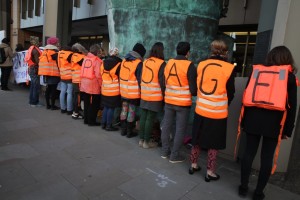
As educationalist Bill Bolloten has noted, ‘It is a new and dangerous step for schools to include children’s radical political views and expressions of dissent as part of their safeguarding provisions.’
Perhaps it is time we asked what kind of society we are morphing into, which demands that citizens rigorously police our own and others’ speech, conduct and associations. It is not intuitively obvious that democratic states should require citizens and civil society to participate in policing, whether of national security or of immigration. How have we allowed it to happen, that so many of civil society’s institutions have been co-opted and conscripted in a war against ‘extremism’ and/ or irregular migration? And what can we do to reverse it?
Related links
A shorter version of this article was published in the London Review of Books (Vol 38, No. 7, 2016). View the article online, here
IRR report: Unwanted, unnoticed: an audit of 160 asylum and immigration related deaths in Europe
IRR briefing paper: Driven to Desperate Measures: 2006-2010
IRR discussion paper: Entitlement and belonging: social restructuring and multicultural Britain
IRR briefing paper: Accelerated removals: a study of the human cost of EU deportation policies, 2009-2010
IRR report: The deportation machine: Europe, asylum and human rights

